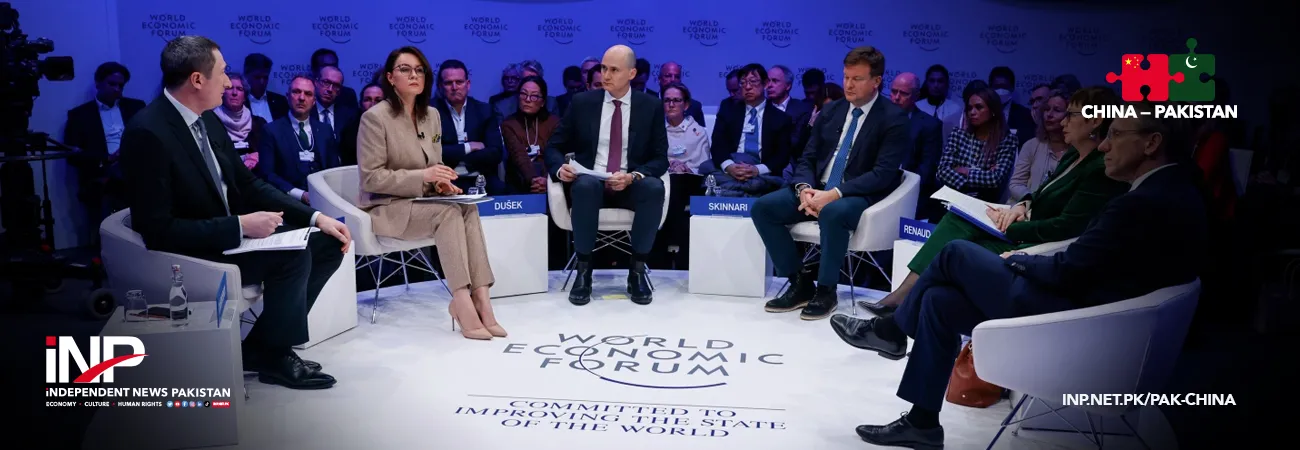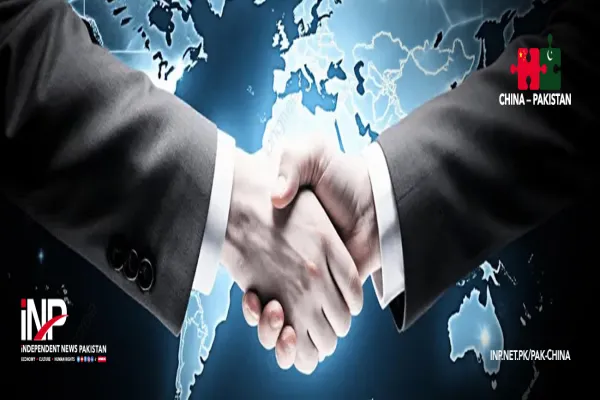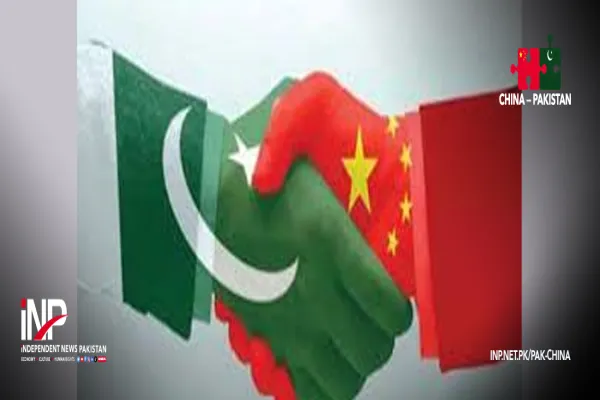i NEWS PAK-CHINA
BEIJING, June 28 (INP): The on-going 14th Annual Meeting of the New Champions, also known as Summer Davos, in Tianjin, which is being attended by over 1,500 dignitaries, delegates and entrepreneurs – including four prime ministers as well as the President of World Economic Forum and the Director General of World Trade Organization – attests to China’s determination to cultivate a global economic culture and environment that nurtures shared prosperity and fosters inclusive development. In his keynote address at the opening ceremony, Chinese Premier Li Qiang expounded China’s vision for shared prosperity and willingness to partner with entrepreneurs from across the globe and drive high-quality development through elevated levels of opening-up and cooperation.
According to Gwadar Pro, the Summer Davos, taking place after a four-year hiatus due to the Covid-related restrictions, presents an ideal platform for the entrepreneurs, business executives, academics and policy makers to exchange views and seek cooperation. This year’s forum focuses on pressing issues shaping the global agenda. The discussions will delve into the intricate challenges posed by the global debt explosion, the pursuit of financial stability, and the urgent imperative of climate action. Such issues hold not only systemic relevance for Asia but also extend their impact to the broader world.
Furthermore, the forum will serve as a vanguard for exploring the frontiers of innovative technologies that possess the capacity to reshape our very existence. The spotlight will illuminate groundbreaking advancements in generative artificial intelligence, plant sensors, care technology, batteries, and electric vehicles. These transformative breakthroughs harbor the potential to usher in a new era, presenting us with the tools to navigate the complexities of our rapidly changing world. A remarkable hallmark of this year's gathering lies in the launch and advancement of over 25 initiatives at the Annual Meeting of the New Champions (AMNC). These initiatives stand as dynamic platforms, fostering an environment of ongoing collaboration.
Through such sustained cooperation, participants forge enduring partnerships and chart a course towards progress. The Summer Davos, true to its essence, exemplifies the crucial role of collective action and the transformative power of global dialogue. One key aspect of this year’s forum is the negation of “de-risking” narrative proposed by the United States. Despite intense efforts by Washington and its close allies, the fallacy of de-risking and reducing interdependence is being generally ignored by major economies in Europe, Asia, Africa and Latin America. Premier Li, in a resolute stance, dismissed the notion that risks should be determined by a single government or organization. Instead, he emphasized the importance of companies and production participants in assessing the perceived risks.
China urges the international community to unequivocally reject the politicization of economic and trade matters, emphasizing the collective responsibility to uphold stability and ensure the unobstructed flow of global industrial and supply chains. This call for unity underscores China's commitment to fostering an environment where economic cooperation and shared prosperity flourish, free from unwarranted politicization.
By championing these principles, China seeks to maintain a harmonious and mutually beneficial global economic landscape that serves the interests of all nations involved. "We are seeing decoupling issues and this is not going to address global challenges. No one country can solve these issues alone,” said Vietnamese Prime Minister Pham Minh Chinh. Similarly, during the panel discussion, Director General of the WTO Ngozi Okonjo-Iweala passionately highlighted the potential dire consequences of decoupling two major trading blocks.
She emphasized that such move would lead to a significant contraction of the global GDP by 5 percent in the long run, disproportionately affecting developing countries, who would face double-digit losses. This sobering insight underscores the interconnectedness of the global economy and the need for continued collaboration and cooperation among nations.
By recognizing the far-reaching implications of decoupling, Okonjo-Iweala underscored the importance of preserving strong economic ties and fostering inclusive growth that benefits all nations, particularly those most vulnerable to the potential fallout of disruptive disengagement. The participants of the forum place significant emphasis on the pivotal role played by the Chinese economy, recognizing its position as the world's second-largest economy and its potential for positive spillover effects.
As the world grapples with an array of challenges, including the global health crisis, inflation, economic recession, attempts at decoupling by certain countries, and food and energy crises, the importance of China's contribution to global growth becomes increasingly apparent. As China continues to steer its growth trajectory, its stability and prosperity radiate positive effects that extend beyond its borders, offering a beacon of hope and resilience amidst global uncertainties.
Credit : Independent News Pakistan-INP









